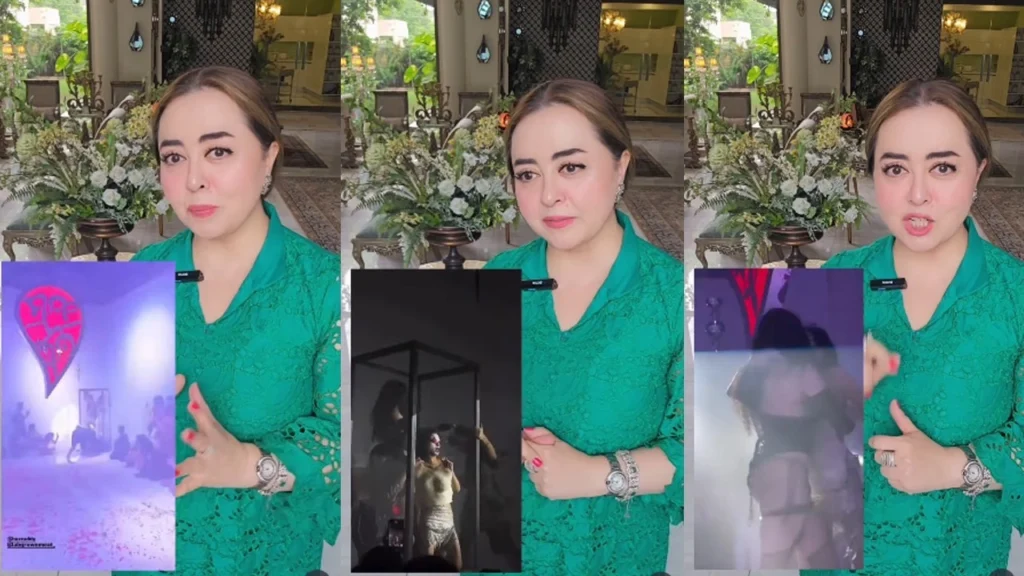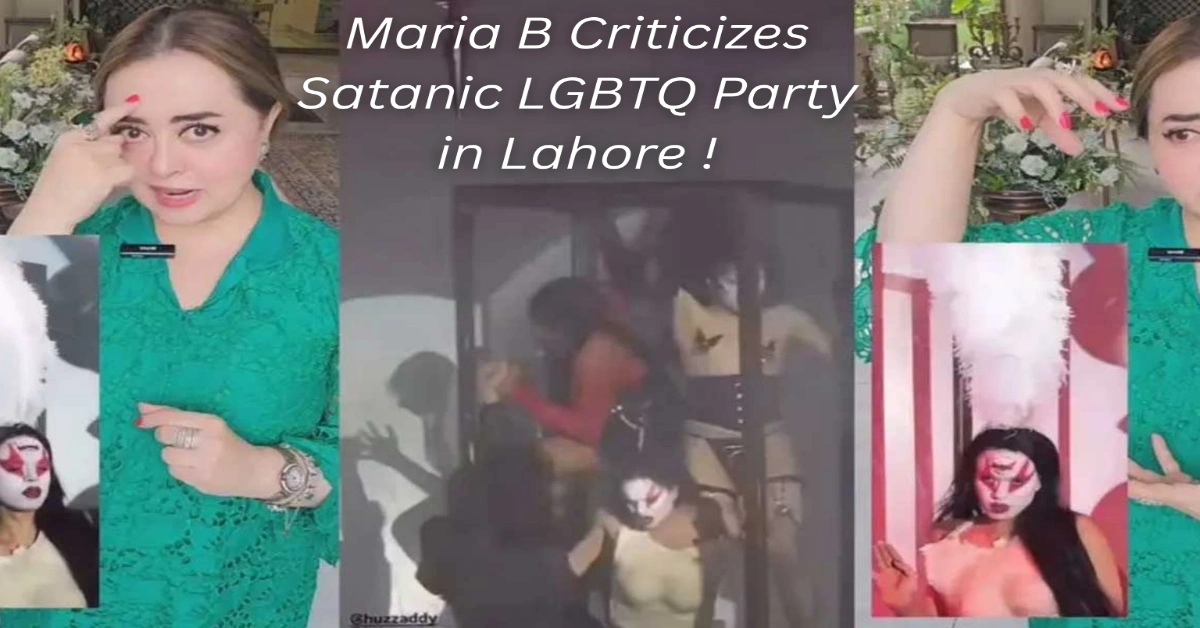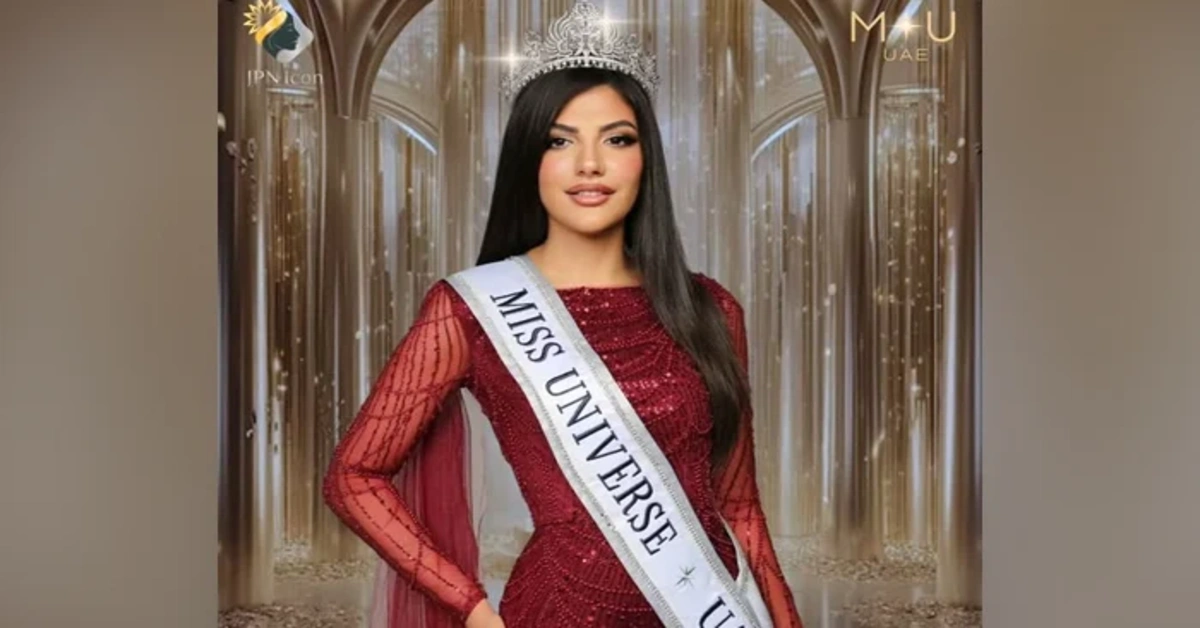Maria B criticizes Satanic LGBTQ party in Lahore, sparking debate on culture, faith, and values. Explore facts, public reactions, and the wider social impact.Understanding this issue is important for anyone who wants to know how society in Pakistan views identity, culture, and moral boundaries today.
Who Is Maria B and Why Her Voice Matters
Maria B is one of Pakistan’s most famous fashion designers, known for her clothing brand and strong public voice. People listen to her because she represents not only style but also cultural and religious values. When she spoke about the lgbtq party in Lahore, it quickly became a national debate. Many felt her words showed how sensitive such topics are in a conservative society
. Her reaction to the lgbtq party in Lahore was not just about one event but about protecting traditions and beliefs. This is why, for many Pakistanis, her opinion on the lgbtq party in lahore carries weight and attention
Who Is Maria B and Why Her Voice Matters
Maria B is a leading fashion designer of Pakistan, respected for her successful brand and strong cultural views. People listen to her because she connects fashion with social values. When she spoke about the lgbtq party in Lahore, it became a major national debate. Many supported her for raising concerns, while others disagreed with her words.
Her opinion on the lgbtq party in lahore matters because she has influence over thousands of followers. For many, her stand on the lgbtq party in Lahore reflects the wider tension between modern trends and traditional beliefs in Pakistan
Maria B’s Controversial Remarks: Breaking Down the Viral Video
Maria B’s controversial remarks spread quickly after her video went online. In the viral clip, she strongly criticized the LGBTQ Party in Lahore, calling it against cultural and religious values. The video soon became a nationwide talking point, dividing people between supporters of her bold stance and critics of her harsh tone. The viral moment shows how one statement from a public figure can ignite national debate, shape opinions, and highlight the clash between modern lifestyles and traditional beliefs in Pakistan.
Public News:https://www.youtube.com/@PublicNewsPK
Understanding the “Satanic” Label: Cultural and Religious Implications
When Maria B used the word “satanic,” it reflected Pakistan’s religious and cultural mindset. In Islam, anything considered “satanic” is seen as harmful to morality and values. Many supporters felt the label fit the LGBTQ Party in Lahore, as they believed such events go against traditional teachings. Critics, however, argued the word was too extreme and spread negativity. This shows the debate is about more than one event—it reflects the clash between faith, culture, and changing social trends in Pakistan.
Also Read:TikToker Amna Baig Arrested in Karachi for Celebratory Firing
Social Media Uproar and Mainstream Media Coverage
The remarks quickly went viral, creating a storm on social media where hashtags, videos, and comments flooded timelines. Supporters praised Maria B for speaking openly, while critics accused her of spreading hate. The social media uproar and mainstream media coverage gave the issue even more attention, as TV channels, newspapers, and online platforms debated the incident.
This showed how one viral video can dominate national discussion, shape public opinion, and bring cultural debates into every household across Pakistan.
Public Reactions: Support, Backlash, and Polarized Opinions
The response to Maria B’s statement showed how divided society is on sensitive issues. Many people expressed support, saying she defended cultural and religious values. On the other hand, there was strong backlash, with critics accusing her of spreading intolerance.
These polarized opinions reflect a wider debate in Pakistan, where tradition and modern views often clash. Public reactions revealed that such controversies are not just about one event but about deeper struggles over identity, freedom, and social values.
Legal and Human Rights Dimensions of the Event
The legal and human rights dimensions of the event are sensitive in Pakistan. Legally, such gatherings face limits due to social and religious norms, while human rights supporters argue for freedom of identity and peaceful assembly. Critics believe these freedoms should not cross cultural or religious boundaries. This ongoing clash highlights the divide between law, rights, and societal values in public spaces
Impact on Maria B’s Fashion Brand and Personal Reputation
The impact on Maria B’s fashion brand and personal reputation has been mixed. Many loyal customers in Pakistan praised her for defending cultural values, which could strengthen her local image. However, critics argue her comments harmed her international reputation, as they were seen as intolerant. For a brand selling both locally and globally, the impact on Maria B’s fashion brand and personal reputation brings risks and opportunities, making balance her biggest challenge.
The Broader LGBTQ Rights Debate in Pakistan
The LGBTQ Party in Lahore has made the broader rights debate in Pakistan more visible, as society struggles between traditional values and calls for inclusion. Supporters highlight equality, safety, and legal protection, while critics raise cultural and religious concerns. The LGBTQ Party in Lahore is not just about one gathering, but a reflection of how Pakistan must balance human rights with social norms and shape its future laws.
Future Implications: Can Dialogue Bridge the Social Divide?
The question of future implications: can dialogue bridge the social divide? is key for Pakistan’s society. Open conversation can reduce fear, clear misunderstandings, and build respect even among people who disagree.
Dialogue alone may not solve every conflict, but it can create space for mutual understanding, guide fair policies, and prevent further polarization. Without dialogue, the gap between communities will only grow deeper.




Join The Discussion